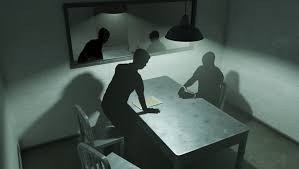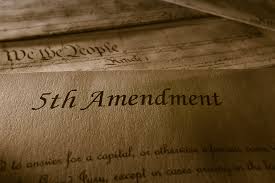
DON’T TALK, DON’T TALK, oh yeah, DON’T TALK!
The absolute most important thing to remember if you are arrested is that you have the right to remain silent and the right to an attorney. These rights, however, only protect you if you use them! If you are arrested, the single best thing that you can do for yourself is to keep quiet until you are represented by a lawyer.
What is an Arrest?
When a police officer takes a person into custody that person is under arrest. An officer takes someone into custody whenever the person is not free to leave. Although many people who are arrested are taken to jail, the arrest often begins much earlier. For example, if a person is stopped on suspicion of assault and questioned and is not free to terminate the questioning, then the person is under arrest.
An officer can only arrest a person if:
-the officer sees the person commit a crime
-the officer has probable cause (reason to believe) that the person has committed a crime (any
or,
-a judge has issued an arrest warrant, supported by probable cause.
Why do the police want to talk to you?
The police want to talk to you because they have some idea that you committed a crime, and they are trying to confirm their belief. They are not looking for the truth, they are not looking to find out what happened, they are trying to confirm their belief you committed a crime. Any information you provide, no matter how “innocent” you are only helps the police confirm their belief. So yeah, DON’T TALK!

Why do so many people want to talk to the police when they are questioned?
-They may want to prove they are innocent. They may want to be cooperative and tell the police
they are innocent. Remember to always be respectful to law enforcement, but DO NOT try to
prove you are innocent. Again, DO NOT talk to the police.
-They may think that if they ask for a lawyer, the police will think they are guilty. This is not true.
It is always smart to ask for a lawyer.
-They may want to tell their story. Do not tell your story to the police. After you speak to your
lawyer, you can talk about how to tell your story to the right people at the right time.
-Many times people think they will go home if they talk and will be released.
What happens after I am arrested?
If you are arrested, you will be searched – either at the scene or at jail, or both – and any contraband or evidence will be seized. You will also be photographed and fingerprinted.
If you cannot afford an attorney, one will be provided for you. You should memorize the numbers of a few people to call in case you are arrested. Police will probably not let you use your cell phone to make calls. Assume that any calls you make from a police station or jail are recorded – unless the call is to your lawyer.
What are my Miranda rights?
Every person who is arrested and questioned by police must be informed of their legal rights to remain silent and be assisted by an attorney (known as your Miranda rights). Typically, a police officer will say something similar to this, “You have the right to remain silent. You have the right to an attorney and if you cannot afford an attorney one will be appointed for you. If you waive these rights and talk to us, anything you say may be used against you in court. Do you understand these rights?" Some police departments will ask a person to sign a written Miranda waiver before talking. It is almost never a good idea to waive your Miranda rights.
 How to I invoke my rights?
How to I invoke my rights?
You have the right to remain silent and the right to an attorney. Invoke your rights! Say something like this, “I wish to remain silent and I would like to talk to a lawyer.” As soon as you have invoked your rights, be quiet. Often people say that they do not want to talk but yet they start talking, say something incriminating, and it gets used against them in court. You can tell police your name and basic information, such as your address and birth date, but do not tell them anything else. After your arrest, do not talk to police officers, do not talk to family or friends about your case, and do not talk to other inmates.
Do not forget that police are trained to coerce incriminating information out of you. You should also assume that any conversations you have in jail with visitors, whether in person or over the phone, are being recorded and monitored. Your conversations with your lawyer are confidential, however, and you and your lawyer can decide what you should say, if anything, to police.
Obtaining Legal Assistance
Being arrested is a bad and stressful experience. A lot of times people just want to get out of jail and think that if they explain the situation or cooperate, the police will let them go. Police officers may even say something to that effect. There is no way that talking to the police can help. You cannot talk yourself out of being arrested. You will never meet a defense attorney who has said: “Thank God my client talked to the police.” Even if you are innocent and you deny your guilt and tell the truth, you can easily get carried away and tell them something that will hang you later. Allow an experienced criminal attorney to tell you side of the story when the time is right!
If you are arrested and charged with a crime, you are entitled to the assistance of an attorney. You should contact an experienced criminal defense attorney to talk about your case right away. Working with a good attorney is the best way to protect your rights and obtain the best possible outcome in your case. At Jones Law Firm we have with decades of experience. Contact us today to set up a free consultation. Please contact us by text or phone at (414) 774-6000 or email at laura@jlfwisconsin.com anytime.
*Any articles in the Libra or posted by Jones Law Firm LLC are not legal advice for a particular client or situation. Further no attorney-client relationship is intended or created with this post.*

